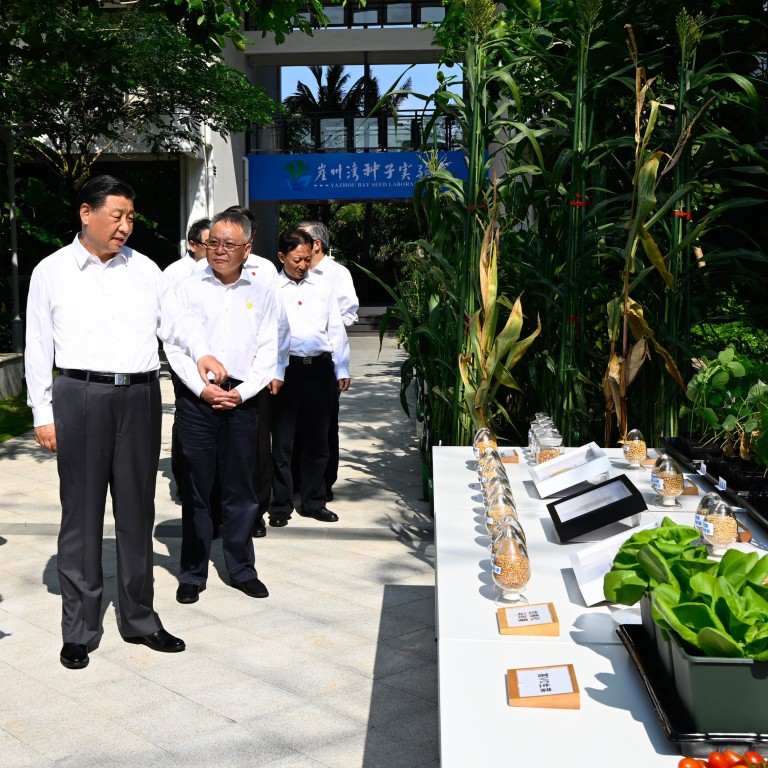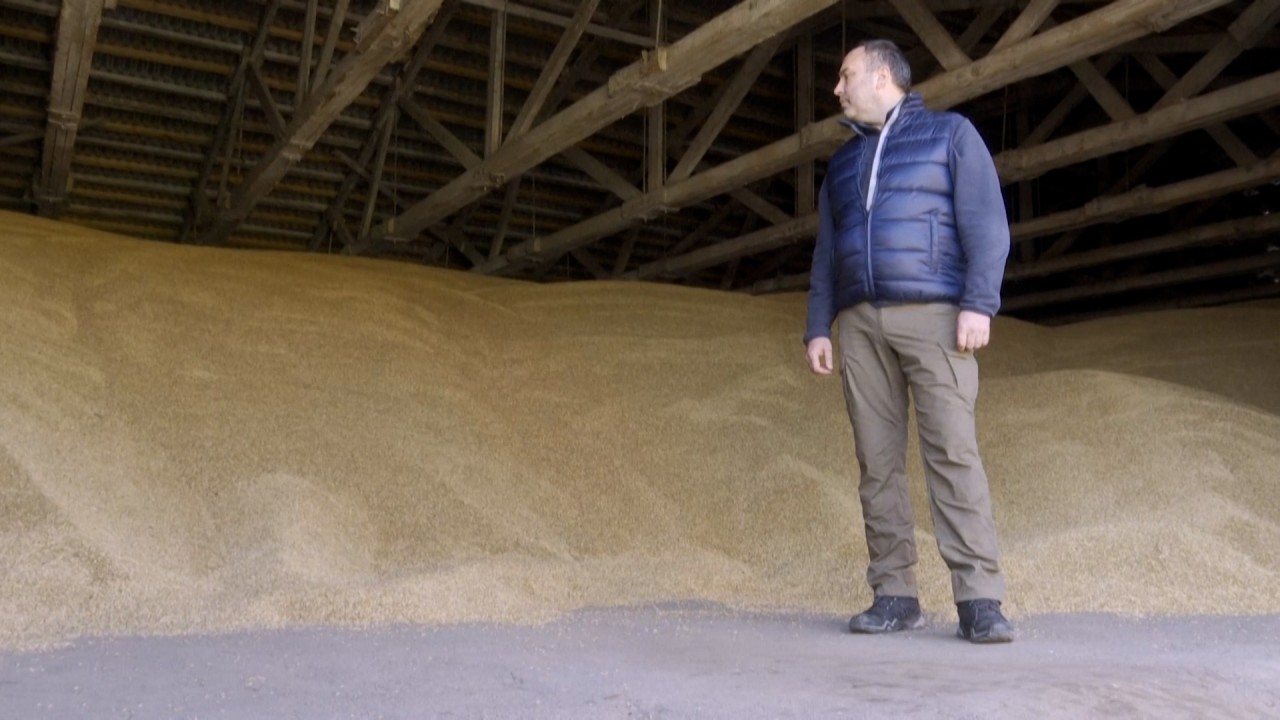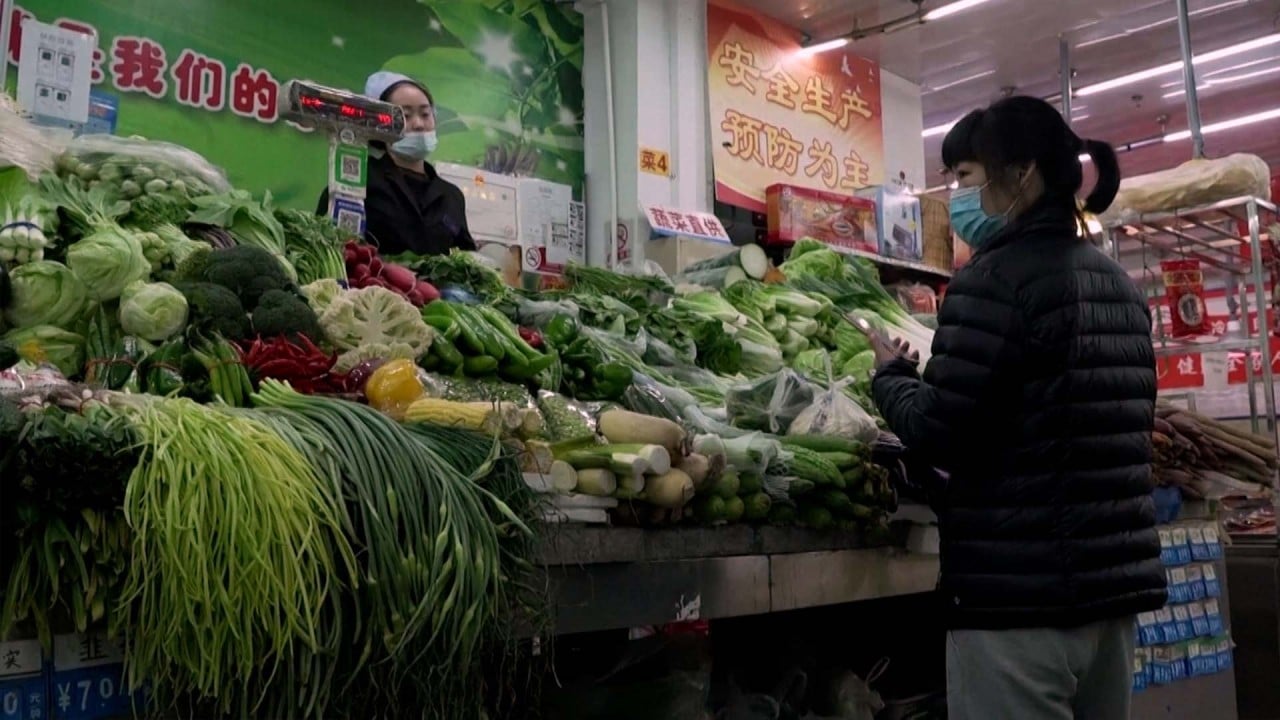
Amid Ukraine and Covid-19, Xi Jinping puts China’s food security in focus with trip to Hainan
- Chinese president also highlights maritime science and deep sea technology
- Island province responsible for developing the bulk of the country’s new seed varieties, researcher says
Chinese President Xi Jinping underscored the importance of food security and marine science on a trip in the southern province of Hainan on the weekend.
Xi visited a seed laboratory and an ocean research institute in Sanya, Hainan, on Sunday, urging the country to reduce dependence on seed imports and accelerate the development of marine sciences, state news agency Xinhua reported.
“Only by holding Chinese seeds tightly with our own hands can we stabilise the Chinese rice bowl and achieve food security,” Xi was quoted as saying at the Yazhou Bay Seed Laboratory.
China is largely self-sufficient in grain and cereals, but relies on imports, mostly from Brazil and the US for much of its soybeans.
It also depends on overseas sources for some vegetable seeds and corn cells for breeding.
China’s seed industry has made great progress but still lags international standards by a big margin, according to Han Wenxiu, deputy director of the Office of the Central Economic and Financial Affairs Commission.
Last month, Xi told delegates to the annual legislative meeting in Beijing that China must not rely on the international market for food.
Shanghai lockdown spurs race to stockpile food across China
Hainan has a unique role in China’s food security, according to Professor Lu Xinxiong, head of the research group of crop germplasm resources preservation with the Chinese Academy of Agricultural Sciences in Beijing.
The tropical island is China’s smallest province by land area, and over a third of it is mountainous and not suitable for crops. But nearly 70 per cent of the nation’s new seed varieties were developed in Hainan.
This is because, according to Lu, most of the commercial plants grew faster in Hainan than anywhere else in China, allowing researchers to select the best species in a shorter time.
“There are many new tools such as molecular biology and gene editing for the development of new species, but they cannot replace the unique natural environment of Hainan. It buys us time,” he said.
With intensive government investment over the last few years, Hainan now served as a sprawling research hub for the study and preservation of these plants, said Lu.
“Some of these studies can benefit the world,” he said.
On Sunday, Xi also visited the Sanya Oceanographic Institution, home to a South China Sea observation system and an ocean big data centre.
Xi told researchers to improve deep sea science and technology and turn China into a maritime power, Xinhua reported.
Pang Zhongying, a professor of international relations at the Ocean University of China in Qingdao, said maritime technology and food security were more than national issues.
“Food security and marine science prowess are important aspects in the geopolitical competition between China and the US,” Pang said.
Biden has also warned China of economic consequences of supporting Russia.
China has refused to condemn the conflict in Ukraine as an invasion, has drawn fire from the West, which has portrayed Beijing as Putin’s enabler.
Speaking at Nato headquarters in Brussels last month, Biden said he had had a “very straightforward conversation” with Xi and was “hopeful” China will not provide support for Russia’s war on Ukraine because of the depth of its economic ties with the West.




